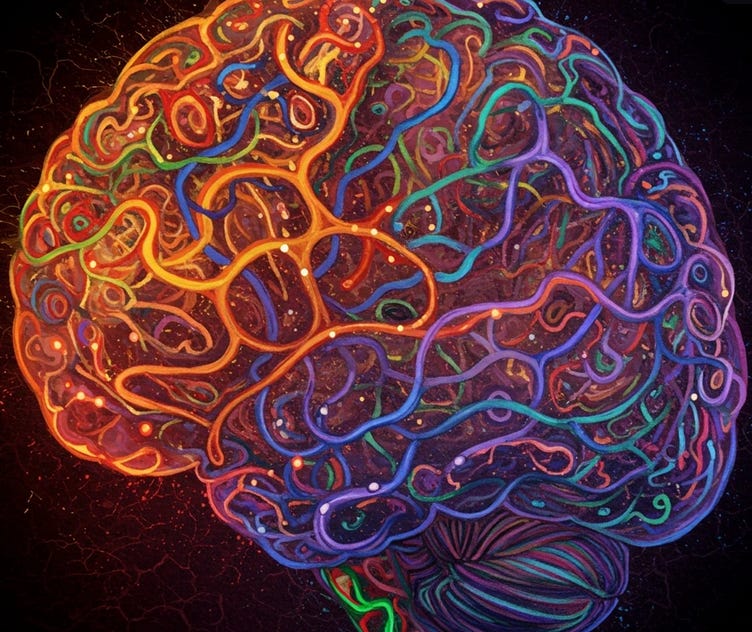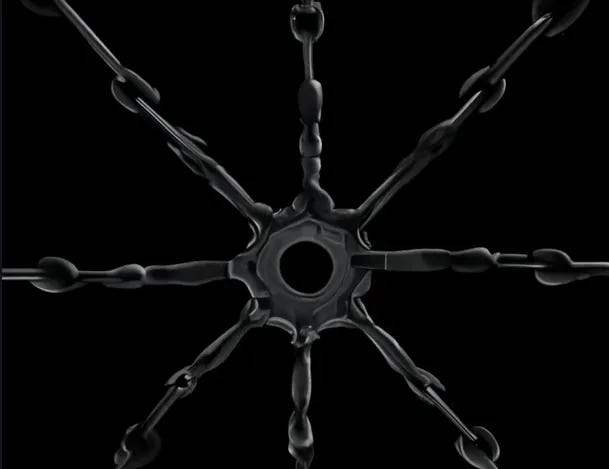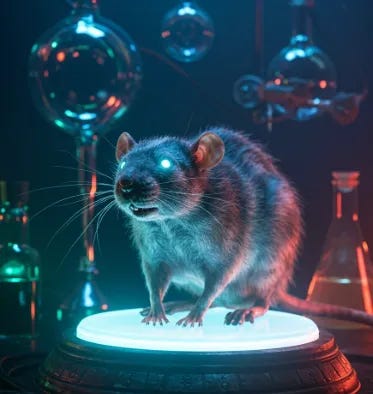Brain Evolution Revisited
In previous posts, I imagined a silicon implant that would act as a prosthetic crutch for failing neurons, astrocytes, etc. [1][2][3] The basic idea is very simple. The human brain is a single point of failure, and difficult to fix or replace. So if you can’t figure out a way to fix it or replace it, then it places a hard limit on human lifespan. If you can fix everything else about us to run forever, the brain will then be your limiting factor on lifespan.
So, if you imagine a nanotech device that binds to each and every nerve cell and reproduces each and every synapse, in both structure and frequency, then you will have a structural map of the brain, and perhaps a map of functions. One might imagine that this nanotech prostetic could take over, whenever a neuron dies. You can read the previous posts, in the references, if that doesn’t make sense to you. I won’t repeat it again here.
But I failed to notice something about silicon devices, compared to biological. These silicon crutches would be programmed to mimic their biological partner, in structure and in speed. But the silicon network, once formed is only working 1/1,000,000 as fast as it _could_ work. Silicon circuits are potentially much much faster than their biological counterpoints. But they might have to run at the speed of the biological network, to make it all work together.
So now a small thought experiment. Once the silicon network is complete, wThhat if these nanobots, had then normal synapse connectivity, but also a more direct and potentially faster connection to each other. So each silicon neuron would be able to talk to biological synapses, but also communicate in a faster connection type to other silicon neurons. So they have 2 possible modes: silicon to biological, and silicon to silicon. And suppose with a flip of a software switch, they could go into a faster mode, where they bypass the synapses, and talk directly to each other at their highest potential speeds?
What would that look like? If you said to yourself, “Let me think about this for 1 minute, but in my fastest speed.” And you flipped the switch.
This alternate mode would function at one million times the speed of your normal brain, so that one minute would be 1000000/60 sec per min / 24 hr per day /365 days per year, or about 2 years subjectively. In other words, that 1 minute of real time, would _feel_ like 2 years of thinking on the subject. You could learn a new language, or a new skill in a time period like that.
Obviously, this alternative circuit would also need to be able to write to your memory, read it, etc. Your body would not be able to keep up. So how do you write to biological memory? Maybe you will need a circuit breaker to prevent your motor nerves from firing. There are other details to be worked out here. (like the fact that making new organic memories requires slow chemistry of mRNA translation and physical changes to cell surface shapes) But the _potential_ of such an ability is huge, and it might be our next step of evolution.
I don’t think we would ever be able to keep up with the AI (artificial intelligences) envisioned by Ray Kurzweil in “The Singularity is Near” [4] and there may be better ways to use this idea, such as doing direct downloads of information into a nanotech memory store, which then effects the slower changes to your organic memory. We may decide that organic memory is just to slow to keep around, and go fully to a nanotech silicon storage. And this does not begin to address what might be possible if these brains were allowed to network with other such empowered brains at this 1,000,000x speed. I really don’t know how that might work out.
But it’s worth thinking about. Even with our slow organic brains.
References
[1] Brain Rejuvenation
[2] The Immortal Brain
[3] The Immortal Brain (revisted)
[4] Kurzweil, R. (2005) The Singularity Is Near: When Humans Transcend Biology. Penguin Books, New York.
The Immortal Brain (revisited)
TLDR: Speculation on immortality, given the brain as a single point of failure.
Brain Rejuvenation
We have been told that brains do not regenerate, and don’t even make new cells after adulthood in mammals.




